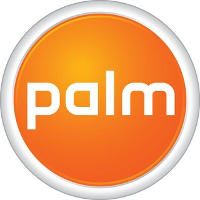Developer preview of WebOS 2.0
 The next major release of Palm's WebOS mobile operating system is gaining momentum. The developers have now made a beta of version 2.0 available to programmers who take part in the early access program. The release of a publicly available version is scheduled to arrive before the end of the year. This would confirm the statements made by former Palm CEO Jon Rubinstein in July. The proprietary-but-Linux-based operating system's current release is WebOS 1.4.5, and the relevant Software Development Kit (SDK) is available with the same version number.
The next major release of Palm's WebOS mobile operating system is gaining momentum. The developers have now made a beta of version 2.0 available to programmers who take part in the early access program. The release of a publicly available version is scheduled to arrive before the end of the year. This would confirm the statements made by former Palm CEO Jon Rubinstein in July. The proprietary-but-Linux-based operating system's current release is WebOS 1.4.5, and the relevant Software Development Kit (SDK) is available with the same version number.
The beta is the first release since HP's take-over of Palm. WebOS 2.0 is considered Palm's response to Apple's iOS 4 and Google's Android 2.2, code named "Froyo". There are also rumours that HP plans to launch its own tablet computer with WebOS 2.0 in the near future.
While multi-tasking already played a central role in earlier versions of the user interface, Palm now plans to take this feature to the next level with components called Stacks. In WebOS, open applications are displayed in small windows called Cards. They can be accessed, exited and sorted using finger gestures. Stacks contain groups of related Cards and are designed to help users keep their hand-held desktops tidy.
With the release of the new version, Palm has also opened up the Synergy APIs to developers. The synchronisation system matches address book entries with related data and messages. For instance, a contact entry not only includes phone numbers and email as well as postal addresses, it also offers event notifications from such sources as Exchange and Google Calendar, emails and SMS messages, and social network accounts. From now on, external developers will also apparently be able to write connectors for the Contacts, Calendar and Messaging APIs.
The "Universal Search" feature has been renamed "Just Type" and now offers features such as the simpler updating of a user's social status, easier scheduling, and extended shopping lists. Developers may find it useful that they can now combine web technologies and C/C++ components in an application via the PDK plug-ins. The PDK's beta state will end with the final new release of the operating system. This simplifies porting apps developed for other platforms to WebOS. Developers can now also write WebOS applications in JavaScript using the Node.js runtime environment, which is included in version 2.0.
See also:
- HP confirms WebOS tablet, a report from The H.
- HP buys Palm, a report from The H.
(crve)
![Kernel Log: Coming in 3.10 (Part 3) [--] Infrastructure](/imgs/43/1/0/4/2/6/7/2/comingin310_4_kicker-4977194bfb0de0d7.png)

![Kernel Log: Coming in 3.10 (Part 3) [--] Infrastructure](/imgs/43/1/0/4/2/3/2/3/comingin310_3_kicker-151cd7b9e9660f05.png)
















